
The annual best of list here at The Metal Pigeon has been an ongoing tradition since I started the blog way back in late 2011. In all those years of writing up lists, I’ve never had as hard a time putting one together as I have for 2022 — not for a lack of fantastic albums, but because of a surplus of them. The ten albums below are culled from an initial pool of twenty-ish nominees, down to a more manageable sixteen, from which I agonizingly forced myself down to my traditional ten. The cuts were hard to make, but harder still was the ordering of this list, particularly the top five (those two at the top in particular I flip-flopped over a dozen times easy) for which I made myself a little crazy re-ordering this way and that. I think that speaks volumes about the sheer quality of the albums on this list however, because most years there are very apparent front runners for those top five spots at least and I’m usually very decisive about it.
It was a really great year for metal, and a much better year for me as a metal fan largely because all the healthier new habits I’ve adopted after 2021’s near burnout have made me a smarter music listener. It’s time to extend that to blogging as well, so expect less of a reviews focus here in 2023 (I already started scaling back in 2022 if you hadn’t noticed) and more of an actual commentary from my perspective as a metal fan (more in line with the actual tagline for the blog!). I want to be more beholden to my own internal musings about metal rather than having to adhere to the release calendar, which is just a treadmill that never seems to end and really risks burning you out. I’ll still have plenty to say about really important records for sure, and will have recommendations to throw your way, that won’t ever change. Speaking of which, let’s get on with just that — If you love metal of any stripe, you’ll find something to really enjoy on this list (likely some of you already know most of these), and be sure to take a glance at the first part of the Best of 2022 feature covering the best songs of the year.
1. Xaon – The Lethean:

This will only be the fourth time in the history of the blog that the same band has captured both the top spot on the best songs and albums list in a particular year. It will be however the third year in a row that a band has managed that feat: Therion did it in 2021, Seven Spires did it in 2020, and before that Avantasia was the first to do it in 2016, but it’s a rarity for a reason, because band’s rarely deliver both an iconic song and a flawless album in one go (and it’s worth crowing about when they do). I had no idea who Xaon were before The Lethean was introduced to me via my cohost Cary on a random late summer episode of the MSRcast, and the song we played on the show (the aforementioned best songs list topper “If I Had Wings”) lingered long in my mind after we finished recording. When I eventually checked out the rest of the album, I don’t think I expected it to reach the same heights as that beautifully epic masterpiece of a song, but somehow, Xaon managed to create a front to finish work of art that not only thrilled me with it’s intensity, but challenged my idea of what progressive metal could sound like and more importantly achieve in terms of it’s visceral emotional impact. That progressive tag by the way is my own inclusion, because although they’re labeled as symphonic death metal on Metallum, to my ears they have more in common with an artist such as… Subterranean Masquerade than they do solely with Fleshgod Apocalypse or Septicflesh. This comes through straightaway in the songwriting, via an unorthodox approach to the way these guys approach arrangements and song structures in general, sometimes even forgoing traditional verse/chorus/bridge sequences altogether. They seemed to arrange their songs into something akin to movements at times, such as on “The Hunt”, with its ever mutating riff sequences and unrelentingly punishing percussive rhythmic attack, all while gorgeous orchestral melodies spiral off on their own accord. The effect was jarring but utterly hypnotic and compelling, the end result being that I just had to hear it again, and again, and again.
A remarkable thing about The Lethean is that it sees the introduction of two new guitarists in the band’s lineup, those most crucial of positions (and also this being the band’s first album without former guitarist / songwriter Vincent Zermatten), with new guys Eerik Maurage and Klin HC making their debut on this album. Pretty astonishing considering their work here just goes for the throat in terms of riff intensity and complexity. But clearly the focal point of the band is vocalist and longest tenured member Rob Carson, who not only seems to be the creative focal point here but also handled the mixing and mastering of the album (no small feat, the sound design here is perfect). Carson might be my favorite vocalist discovery of the year, a singer whose range veers from a suitably gravely textured throat for screaming vox, and a clean voice that is capable of gentle, emotive melodies ala Steven Wilson or Mikael Akerfeldt as on the closing lament “Telos”. He’s at his most impressive however when he blends those two styles into something very much his own, as heard on “If I Had Wings”, “Wayward Son”, or “In Pyrrhic Seas”, a full throated, unhinged sounding clean metal vocal that sounds like Primordial’s Alan Averill meshed with Paradise Lost’s Nick Holmes. The last few minutes of “And Yet I Smile” demonstrates his versatility in another unpredictable way, with a guttural meets clean vocal melody that would sound at home on both a Carach Angren and Orphaned Land record (his voice is damn versatile). There was not a single weak moment or minute wasted on this album, a rarity for a track list that exceeded the fifty minute mark (just barely by a minute-ish). It’s also an album that is very challenging to describe into words, because I don’t think I’ve ever quite heard anything like it. Yes it has the orchestrations and grandeur inherent in symphonic metal, and certainly it has the progressive death metal that would hook in fans of older Opeth or Amorphis or Edge of Sanity even — but this is an album that is so much more than the sum of it’s parts. Carson and company have molded these influences into something that is actually original, that seethes with primal energy and is also dazzlingly beautiful, and in the process have created the most thrilling and convincing metal album of the year.
(Also appears on: The Metal Pigeon’s Best Songs of 2022)
2. Brymir – Voices in the Sky:
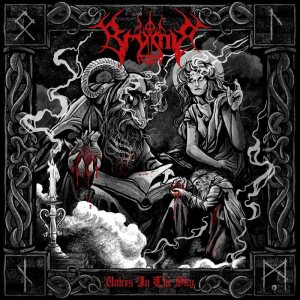
In a perfect world, there would be a way for Brymir’s incredible, nigh flawless Voices in the Sky to sit atop the album of the year list on this blog, perhaps by being released a year earlier or later, but alas it had the misfortune of running up alongside that Xaon album and well, it will have to settle here. I’ll be honest though, in my stressing over the assembly of this list, it sat at the very top for about half of the various revisions and there were a few times were I toyed around with flipping a coin to see who would get the top spot. What I ultimately worked out however was giving the edge to The Lethean because it presented a band that was new to me who had a sound that I genuinely felt I hadn’t heard before, whereas Voices in the Sky is the perfection of a sound that I’ve heard Brymir making progress on throughout their career. Head to head, I went with rewarding the band that was entirely novel to me, but that shouldn’t lessen Brymir’s accomplishment here in any way. Their previous album Wings of Fire (2019) was an incredibly promising and sometimes frustrating listen — you could tell they were still trying to work out how to balance the disparate elements in their sound, that furious neoclassical infused Finnish black metal blitz with that sparkly, sugary power metal melodicism. They figured it out in full on Voices in the Sky, crafting a fully realized vision of what their sound should be, with instant classics such as “Fly With Me” and “Far From Home”, shining examples of that multifaceted, dynamic songwriting approach honed to a razor sharp edge. The “Herald of Aegir” was my personal highlight on the album, an ascending to the heavens skyrocketing banger that was framed by absolutely explosive epic vocal harmonies courtesy of bassist Jarkko Niemi and guitarist Joona Björkroth (these guys deserve the MVP award for their stellar work throughout the album as complements to lead vocalist Viktor Gullichsen). The songwriting throughout the album displayed admirable creativity and craftsmanship, with songs centered around precision hooks yet unafraid to be adventurous and zigzag in unexpected ways elsewhere. This album rocked with conviction and a genuinely fiery spirit, something rare and worth cherishing.
3. Månegarm – Ynglingaättens öde:

This album was at one point the leading contender for topping the album of the year list, having a brief head start on the two above it. Despite being bumped down a few spots, it is far and away my favorite traditional folk metal album of the past decade, and that’s saying a lot considering we’ve enjoyed a folk metal renaissance over the past few years. Although Månegarm had been putting out fairly solid records throughout the years with a few stumbles and missteps, they seem to have stuck upon a rich vein of inspiration here. These songs interweave gorgeous Scandinavian folk instrumentation with metallic elements so effortlessly that it gives the entire album a rustic, earthen, and organic feel that has proven so difficult for bands to achieve (so many who try often fall into traps of gimmickry and silliness). The glue that makes it all work is the absolute earnestness that comes through in these individual performances, both musically and vocally, with singer Erik Grawsiö’s work here at the top of the list. He seems to effortlessly glide from charcoal black metal grimness to a gruff melodic singing voice, with forays into beautifully deep, layered folky harmonies. There is a stellar cast of guest vocalists here as well, all bringing strikingly different tones to these songs, of particular note being Lea Grawsiö Lindström (Erik’s daughter) and past collaborator Ellinor Videfors, who both turn in star turns on their respective songs (Lea’s appearance on “En snara av guld” being one of my songs of the year). Martin Björklund’s violin work throughout the album is key to it’s sheer beauty in many moments, a honeyed counterpoint to the often ferocious metallic attack that sounds way louder than a three piece metal band should. So crucial is the interweaving of the violin parts that I’m considering Björklund as important as guitarist Markus Andé, who is also having a career moment here himself. I can’t fully express just how gratifying of a listen this album was, and how damn difficult it made sorting out this year’s best albums list along with the two troublemakers above. Sometimes albums end up on this list that I just don’t get back to very often as the years roll by, but I feel in my gut that this won’t be one of those.
(Also appears on: The Metal Pigeon’s Best Songs of 2022)
4. Saor – Origins:

One of my most listened to albums of 2022, Saor’s Origins was the go to soundtrack for most of my summer when I wasn’t listening to you know, Judas Priest, Dokken, and Scorpions (ie summertime jams). Unlike the earthen warmth that permeated 2019’s Forgotten Paths and it’s more rootsy folk metal infusions, Saor’s singular member Andy Marshall expands his palette on Origins, incorporating not only specific Celtic instrumentation with bagpipes, but lush keyboard orchestrations that are cinematic in their arrangement. It’s fitting for an album that dreams of cloud streaked skies, winds rippling through mountains, and a sense of wide open spaces. What really surprised me was how spiritual this music felt, and how personal that feeling could still be when it was the near inverse of Forgotten Path’s inward looking feelings. Part of Marshall’s success in crafting his sound is his ability to create atmospheric folk metal that sounds naturally blended together — at no point do the folk elements seem forced or clumsily thrust in out of place. On “Aurora”, Marshall delivers an aching lead melody, these bent melodic lines that all of a sudden give way to a lonely bagpipe sounding solo that eventually reintroduces the lead guitar back with a melancholic counterpoint, the combination of which is one of the most epic things I’ve heard. I suspect the other big musical aspect of Origins’ success is the decision to scale back the purely atmospheric black metal in favor of a more mixed upfront, straight ahead metal guitar attack. The lack of waves of tremolo riff layering actually lends more space within the framework of these songs, allowing the folk elements to breathe more and incorporate into things a little easier. Atmospheric folk metal rarely sounds this cinematic and powerful at the same time, its a difficult balance to get right, but on Origins Marshall created an album that sets itself apart from the rest of the subgenre, and was easily one of the most beautiful albums of the year.
5. Gladenfold – Nemesis:

One of just a few artists on this list that were completely new to me, Gladenfold came out of nowhere this year courtesy a random Spotify playlist placement and knocked me sideways. Their blend of keyboard heavy Finnish melodic death metal with generous swirls of Kamelot or classic era Sonata power metal has proven to be a revelation, and on Nemesis they’ve channeled this versatile, dynamic sound through incredibly assured songwriting. Alongside Xaor’s Rob Carson, Gladenfold vocalist Esko Itälä made the biggest impression on me this year for turning in a vocal performance that was not only surprising in it’s scope, but in just how well he was able to deliver all the varying facets of his vocal approach. Be it the gorgeous Roy Khan-ian rich smoothness of his singing on “Saraste” or “Where Mountains Mourn” where his deep, sonorous timbre created emotional swells that moved like gentle waves; or the sharpness of his melodeath growl on “Chiara’s Blessing” and “Revelations” that is a damn convincing blend of early Bodom era Alexi and Suidakra’s Arkadius Antonik and all shades in between. It’s rare to have a vocalist doing double duty on harshes and cleans where you’re satisfied at any particular moment — most of the time you find yourself wanting more of one style than the other. Itälä may have the most intriguing power metal voice to emerge in the last decade, because though I can sit here spitting out comparisons all day, the truth is that he really has a distinct tone all his own and I’m excited to see how he can develop it further. Not to ignore the band’s accomplishments as a whole however, because the performances here are incredible and the songwriting is masterfully crafted, full of depth and with intricate designs that build towards satisfying payoffs in hooks and musical refrains. This lushly layered album unfolded over a multitude of listens, as I was unable to escape it’s pull and kept returning to it again and again.
6. Therion – Leviathan II:

The latest in the continuing trilogy of albums that are the closest thing to fan service you could possibly expect from a band that has made a career of doing things their own way (stubbornly at that), Leviathan II avoided being a let down in the wake of its stunningly awesome predecessor (and last year’s best albums list topper), instead living up to its promise of being a nod towards the band’s enchantingly softer, melancholic side. The rush of warm nostalgia that I get when listening through Leviathan II is something I have a hard time putting into words. If you loved albums such as Vovin and Deggial in the past and obsessed over them as hard as I did, you might be able to understand what I’m referring to. But its also the splash of gothic metal vibes that I get from tunes such as “Alchemy of the Soul” and “Lunar Colored Fields” that really hits me in the feels. It brings to mind forgotten bands from that mid to late 90s era when gothic and symphonic metal were budding seeds — and black shirt adorned Euro kids would huddle in tiny clubs with bad lighting and rickety stages and listen to music that made them feel like they were on a hillside full of flowers. The shining gem here is the best songs listee “Cavern Cold As Ice”, one of the most bright and beautiful uptempo Therion songs to date, recalling such disparate touchstones such as their old ABBA cover “Summernight City” and the title track of the Gothic Kabbalah album. That this album isn’t higher on the list, perhaps even at the top isn’t a slight against it’s quality, but more of a commentary on just how incredible the rest of the albums above it on the list were. I loved Leviathan II a great deal, perhaps just slightly under its predecessor where the band caught a little accidental inspiration by focusing more heavily on vocal melodies than ever before and created something truly fresh. This album by contrast revels in old school mid-late 90s nostalgia, and its for that reason that I love it to death.
(Also appears on: The Metal Pigeon’s Best Songs of 2022)
7. Dawn of Destiny – Of Silence:

Dawn of Destiny just doesn’t know how to disappoint really, with all of their albums since 2014’s best albums listee F.E.A.R. landing somewhere in between very good and damn great. Their mix of gothic metal and hard rock with tinges of power metal hits a sweet spot for me that is put over the top by the pipes of vocalist Jeanette Scherff. But despite the band delivering strong records in all these years since F.E.A.R., this is the first time we’re seeing them return to the Best of list in nearly a decade, which means that Of Silence is truly a special record, not merely a great one. Truth be told it’s hard to tell what happened here to elevate things, because Scherff is as impressive as she’s ever been, but the secret might be in bassist/songwriter Jens Faber just feeling himself creatively these days. He put out another awesome record in his side project with Henning Basse in Legions of the Night, their second in the past year, and those along with Of Silence just prove that he should be considered one of the premier songwriters in the greater melodic metal world right now (he’s not of course, just like Scherff being an underrated and overlooked singer, Faber is rarely given the credit he’s due). This album has some of the band’s best ever tunes, the gorgeous best songs listee power ballad “Little Flower”, the thunderously heavy “Judas in Me” with it’s Accept-ian riffs and rhythmic swagger, and the breathlessly rushing epic “Say My Name”. Not a weak song on this tracklist and front to finish just incredibly strong songwriting — one of the most rewarding albums I had the pleasure of listening to all year.
(Also appears on: The Metal Pigeon’s Best Songs of 2022)
8. Einvigi – Yö kulje kanssani:

It’s rare that atmo-black makes appearances on my year end lists, Alcest being the exception really, because most of the time I appreciate atmo-black for it’s pretty ear candy qualities alone, and rarely get into it on a more personal, emotional level. Finland’s Einvigi released an album this past April that was the exception to that, a record that was more concerned with expressing emotions on an intimate, personal scale rather than the grand sonic gestures of some of their contemporaries. What I loved the most about these songs was the emphasis on building them not around blasts of dissonant tremolo passages and heavily distorted fuzzy wash (there was plenty of it however), instead structuring them around looser, jangly guitar patterns reminiscent of alternative rock bands such as The Cranberries or Smashing Pumpkins. No kidding, there are times when I felt like this was what Siamese Dream might have sounded like if put through a black metal filter, with little splashes of Steven Street style production on it’s more clean guitar leaning moments. This was an album meant to be experienced together in one fell swoop, a thirty-eight minute emotional experience that struck chords of nostalgia, exuberance, sadness, and gratitude at varying moments. I’ll always associate this album with the first time I listened to it, taking an extended detour on a drive to the grocery store just to digest it all without interruption as a soundtrack to a bright sunny day. Points also need to be given to Einvigi here for crafting an atmo-black record that sounds nothing like their subgenre contemporaries from France or the USA, nor even the strains of Finnish black metal we’ve come to associate with certain influential bands from that country. They have a remarkably unique sound unto themselves, and here they wielded it not as a cudgel or battle axe, but like a paintbrush.
9. Oceans of Slumber – Starlight and Ash:

This might be the biggest shock on this list, because I’ve been rather critical of Oceans of Slumber’s past few records, feeling like they were at times overwrought, overcooked, or even too heavy for their own good. The latter point is something the band themselves began to address on their previous album, scaling back their death/doom mode by several degrees and allowing vocalist Cammie Gilbert to take the reigns on a handful of songs, her vocal melodies leading the way. The band must’ve come to the same conclusion as me, because they’ve taken the musical seeds of those tracks and allowed them to bloom here in unexpected and satisfying ways. I wrote in my original review that this was the album I had always hoped Oceans of Slumber would make, but that it exceeded my expectations was something I’ll admit to not foreseeing. And the tag of “southern gothic” to describe the sound on Starlight and Ash is not only the most fitting descriptor for any record released this year, but really hits the nail on the head regarding what exactly is happening musically and texturally here. The album opener “The Waters Rising” is arranged with delicate piano and acoustic guitar lines, but a throbbing electronic pulse runs underneath, like the humming buzz of Houston’s streets and freeways. The sultry, jazzy R&B feel of the musical arrangements here are a complement to Gilbert’s vocal approach, which reminds me at times of Natalie Merchant and Tracey Thorn blended together — whereas in the past it’d seem like the music was fighting against her tonally. With the change in musical direction, Oceans tossed the progressive song lengths, trimming things down to more of a pop/rock format, a shrewd move that proved to keep things focused, concise and with the resulting aim to get to the emotional center of things quicker. It worked for me, this was one of those albums that really made me stop and pay attention and wonder in surprise.
(Also appears on: The Metal Pigeon’s Best Songs of 2022)
10. Avatarium – Death, Where Is Your Sting:

I didn’t get a chance to review the newest Avatarium album at any point these past few months, but it ended up being one of my most revisited albums in the last quarter of the year for good reason. The band had started off on their debut with more of a doom metal sound back when Leif Edling was still in the band and ostensibly influencing their artistic direction, but since he left, the band has pursued a direction that owes more to 70s hard rock than say the utter darkness of Candlemass. That means brighter melodies, at times even major key anchored hooks and melodies — almost as if they’ve owned up to a hidden Fleetwood Mac obsession at times. The pair of albums that followed Edling’s departure were the band finding their way towards a sound that is fully realized on Death, Where Is Your Sting. This is their front to back first bonafide masterpiece, a smoky, crushed velvet draped hard rock record that smacks of vintage Whitesnake and Thunder with the unmistakable darkness of Black Sabbath and yes, hints of Candlemass. Vocalist Jennie-Ann Smith has been consistently great throughout her tenure with the band, but here she sounds liberated, her vocal melodies providing the melodic thrust throughout, as on the smoldering slow build of “Stockholm”, or the strangely uplifting title track. Her titanic belting performance on “God Is Silent” is Dio-esque in its raw power and yet precision control, she’s really just one of the strongest vocalists out there right now and hopefully will start getting the credit she richly deserves. More than anything, this album reminded me of what I loved and missed so much about hard rock all these years (a genre for which it was a lowkey strong year), particularly that when done right, it’s a direct connection to the gut in a way that metal sometimes can overcomplicate and miss that mark.

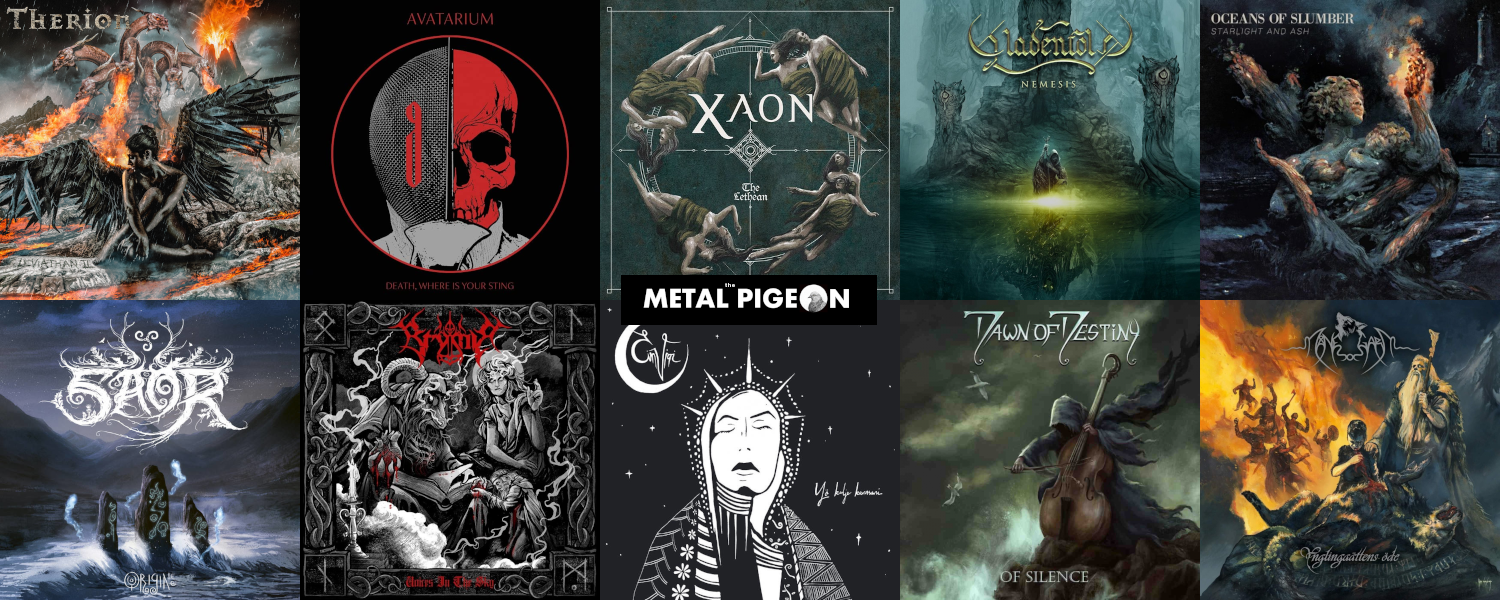
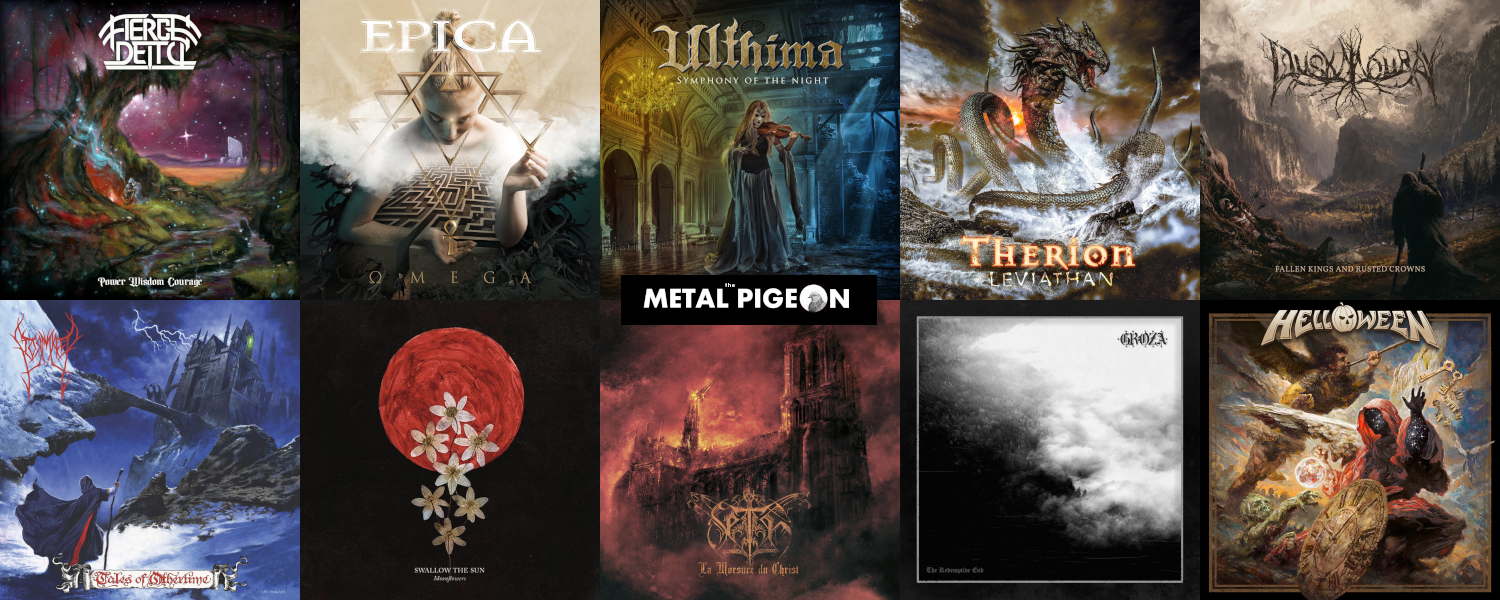










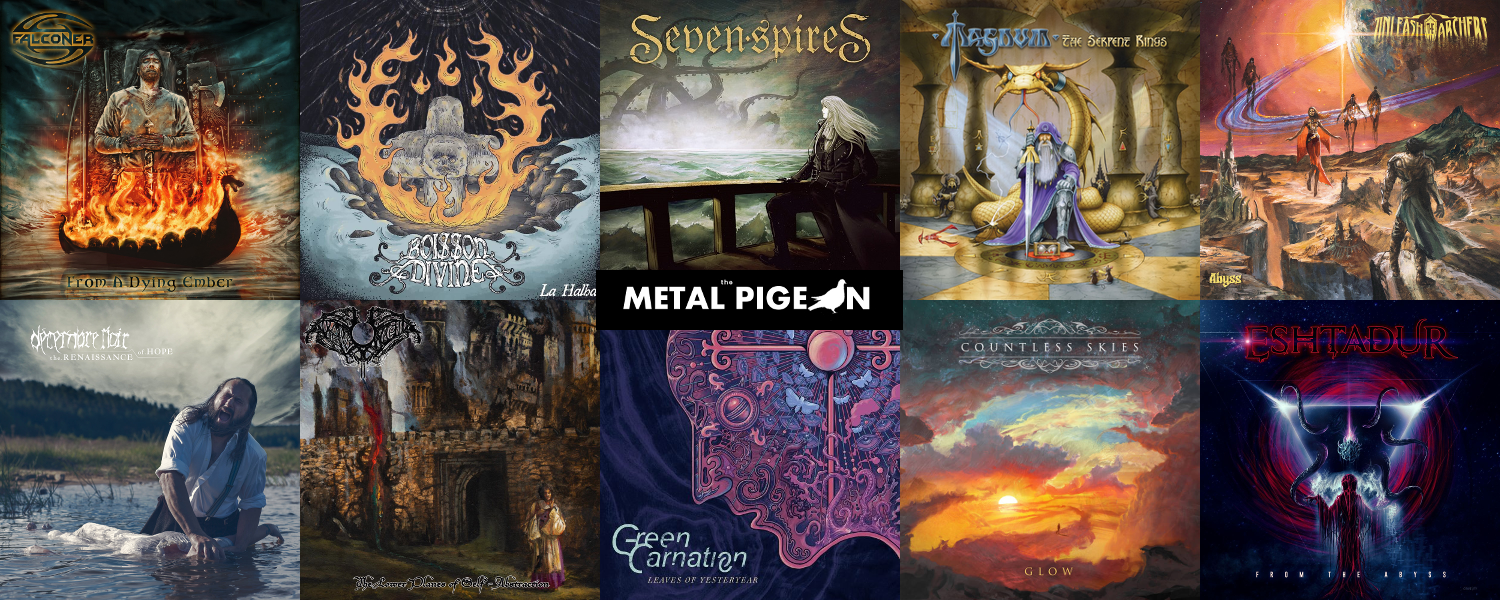











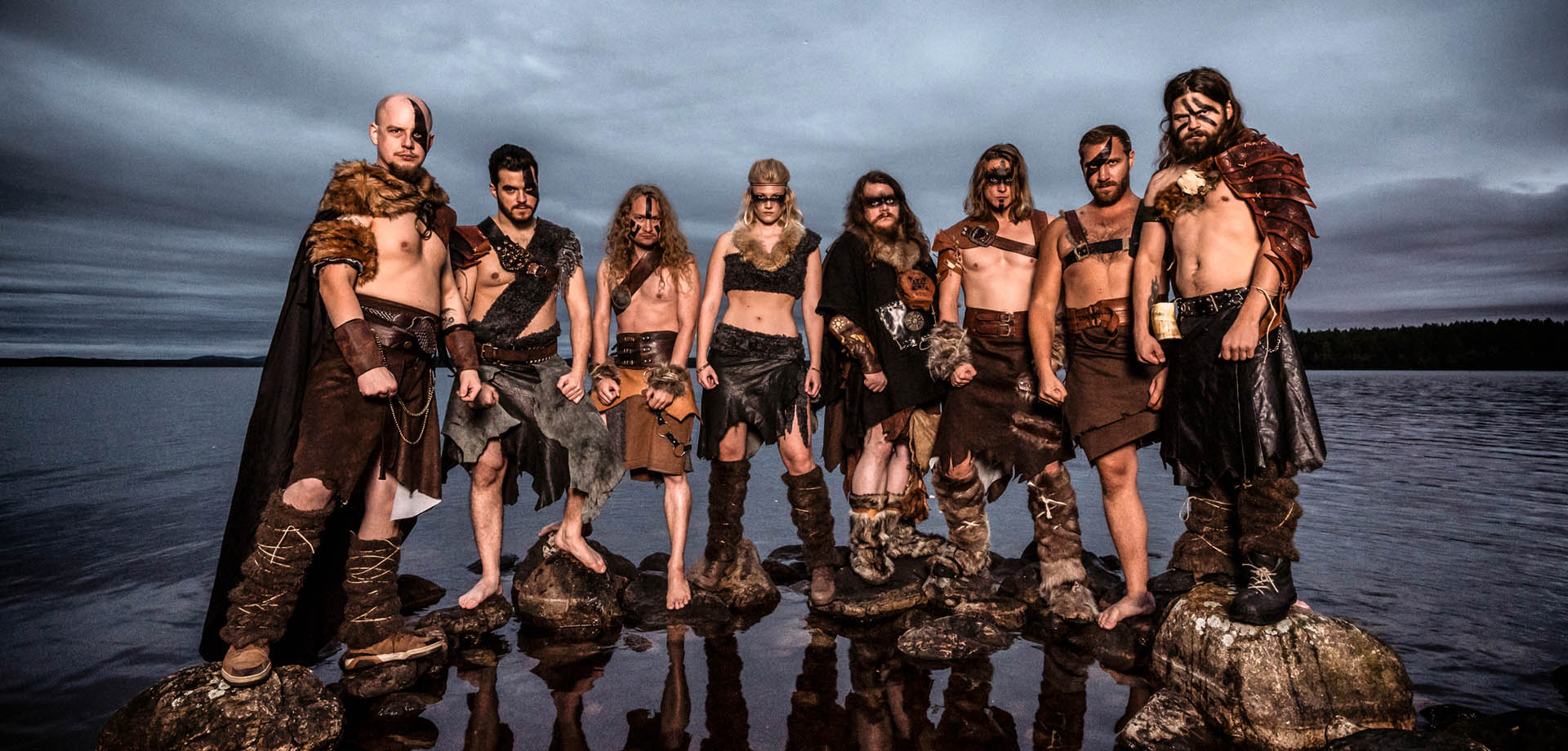



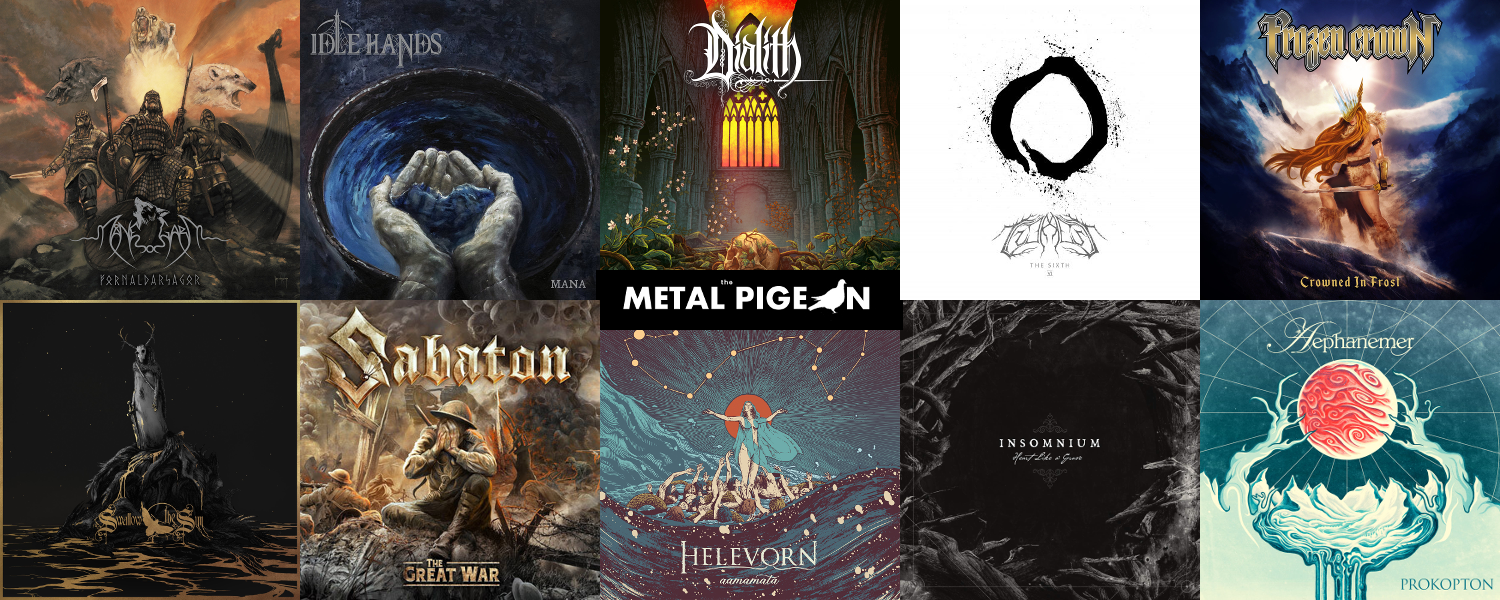















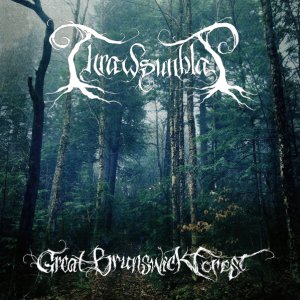


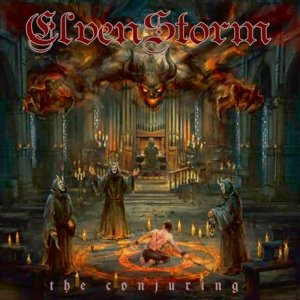


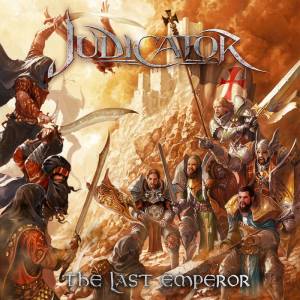



 2. Ghost Brigade – IV – One With the Storm:
2. Ghost Brigade – IV – One With the Storm: 3. Dawn of Destiny – F.E.A.R.:
3. Dawn of Destiny – F.E.A.R.:

 6. Primordial – Where Greater Men Have Fallen:
6. Primordial – Where Greater Men Have Fallen: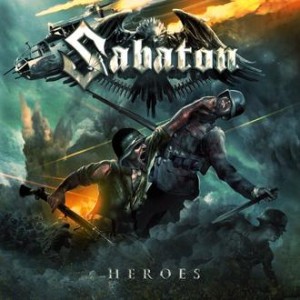 7. Sabaton – Heroes:
7. Sabaton – Heroes:
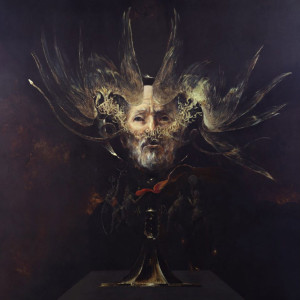 9. Behemoth – The Satanist:
9. Behemoth – The Satanist: 10. Noble Beast – Noble Beast:
10. Noble Beast – Noble Beast: